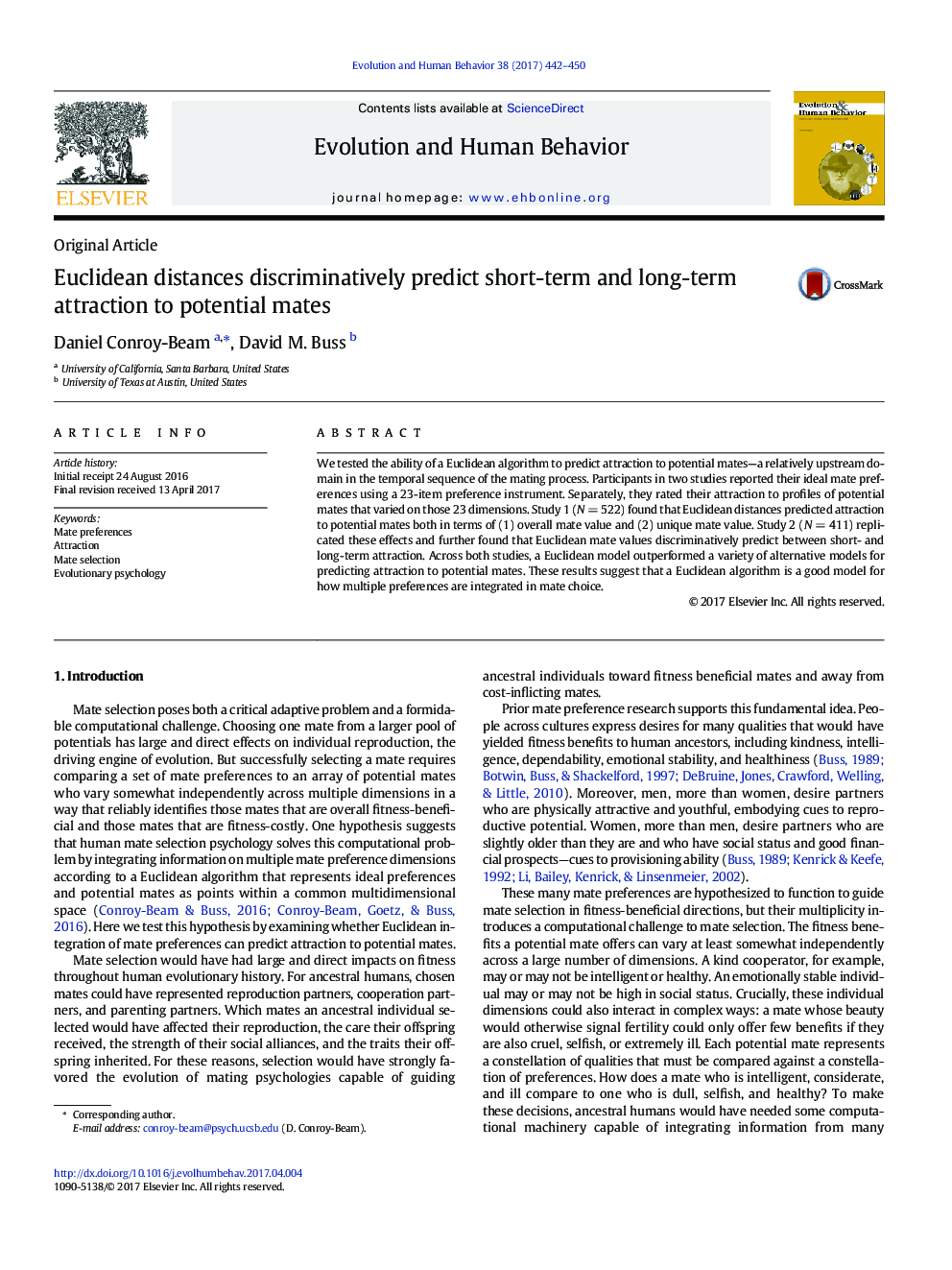| Article ID | Journal | Published Year | Pages | File Type |
|---|---|---|---|---|
| 5044809 | Evolution and Human Behavior | 2017 | 9 Pages |
We tested the ability of a Euclidean algorithm to predict attraction to potential mates-a relatively upstream domain in the temporal sequence of the mating process. Participants in two studies reported their ideal mate preferences using a 23-item preference instrument. Separately, they rated their attraction to profiles of potential mates that varied on those 23 dimensions. Study 1 (NÂ =Â 522) found that Euclidean distances predicted attraction to potential mates both in terms of (1) overall mate value and (2) unique mate value. Study 2 (NÂ =Â 411) replicated these effects and further found that Euclidean mate values discriminatively predict between short- and long-term attraction. Across both studies, a Euclidean model outperformed a variety of alternative models for predicting attraction to potential mates. These results suggest that a Euclidean algorithm is a good model for how multiple preferences are integrated in mate choice.
